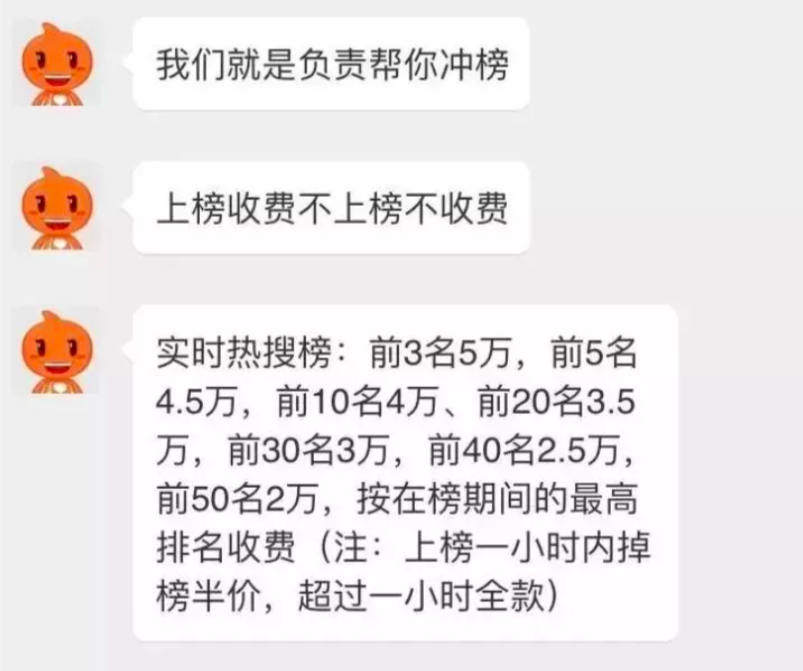Sina Weibo denounced for manipulation of trending topics and inadequate censorship

Links in Chinese unless otherwise specified
It’s been a shaky few months for Sina Weibo, China’s largest microblogging service. Last month, after receiving tips from Weibo users, the platform shut down 246 accounts for posting pornographic content involving children. A mere few days later, Weibo also deleted more than 3,000 posts of children’s cartoons that were deemed “disturbing and violent” to concerned parents.
‘Spider-Man,’ ‘surgery,’ ‘injection’ among blocked search terms as China cracks down on Elsagate
The company’s fumbling attempts to monitor the posts and information being disseminated on its website, however, were not enough to appease China’s internet watchdog, the Cyberspace Administration of China (CAC). A week ago, media reports began to surface that executives from Weibo had met with CAC representatives to discuss the company’s failures in regulating its content. Shortly after the meeting, on January 27, the CAC released a statement denouncing Weibo for “not fulfilling its duties of censorship” and “allowing misleading, vulgar, pornographic, and ethnically discriminatory information” to spread on its platform. In compliance with orders from the CAC, Weibo later posted that it would be taking several of its features offline for a week, including its rankings of top searches, hot topics, and trending celebrities.
The company followed up with a post the next day announcing the ban of 38 highly-searched terms and hashtags suspected of being bumped up for a fee. The list mainly comprises celebrity names as well as a hashtag about actor Sun Honglei 孙红雷 suing a secondhand vehicle website, a story that has been condemned by the actor’s agent as spurious.

Reaction to Sina’s overhaul of its top-searches portals has been mixed. It has long been an open secret that celebrities, movies, and TV shows pay agencies to help them climb Weibo’s top-search or hot-topic lists. According to entertainment outlet Yuleguan, one of these agencies promised to guarantee a top-10 placement on such a list for 40,000 RMB ($6,366). A top-3 ranking could be attained for 50,000 RMB ($7,958).
Several of the celebrities listed in Sina’s post, however, have adamantly denied ever paying for services to manipulate topic searches. Fans have been furious as well, accusing Sina of defaming their idols while leaving the true offenders untouched.
“China’s Rupert Murdoch” takes full ownership of studio behind Kung Fu Panda 3
Last Friday, CMC Capital Partners, a Chinese investment group led by media mogul Li Ruigang 黎瑞刚 — also known as “China’s Rupert Murdoch” — announced that it was acquiring full ownership of the Shanghai-based Oriental DreamWorks. Established in 2012 as a joint venture between CMC Capital Partners and DreamWorks Animations, Oriental DreamWorks is best known as the studio that helped make Chinese American co-production Kung Fu Panda 3.
According to a company statement, CMC Capital Partners had acquired NBCUniversal’s 45 percent stake in the China-Hollywood tie-up and was re-launching Oriental DreamWorks as Pearl Studio. NBCUniversal inherited its stake in the joint venture when its parent company, Comcast, acquired DreamWorks Animation in 2016.
News of the acquisition has not come as much as a surprise for industry insiders, as the history of Oriental DreamWorks has been marked by turbulence and uncertainty, to say the least. While its establishment was once touted as a landmark collaboration between American and Chinese studios, the withdrawal of NBCUniversal from the joint venture serves as a bellwether of the Chinese entertainment industry’s changing relationship with Hollywood.
Oriental DreamWorks’s most successful project to date had been Kung Fu Panda 3. The animation film raked in a respectable 1 billion RMB ($143.5 million) last year, and it also broke records in merchandise sales in China, according to Entertainment Capital. However, in the six years since its inception, Oriental DreamWorks has not been able to produce any animated feature film apart from Kung Fu Panda 3. And in the past few years, the company has been dogged by news about company layoffs and restructuring, or rumors about clashes between its two major shareholders, CMC Capital Partners and NBCUniversal, as reported by Financial Times.
The exiting of a Hollywood studio from what was once considered a flagship China-U.S. tie-up is another sign that Hollywood and Chinese companies are on uneasy terms. Last year, Q Daily reported that Chinese financing of Hollywood studios in 2017 was merely a tenth of the investment amount it poured in the year before. The retrenchments in investment have largely been attributed to a series of policies implemented by the Chinese government last year to clamp down on capital outflows and overseas dealmaking.
Related:
Legal disputes continue to plague reality show ‘The Voice of China’






